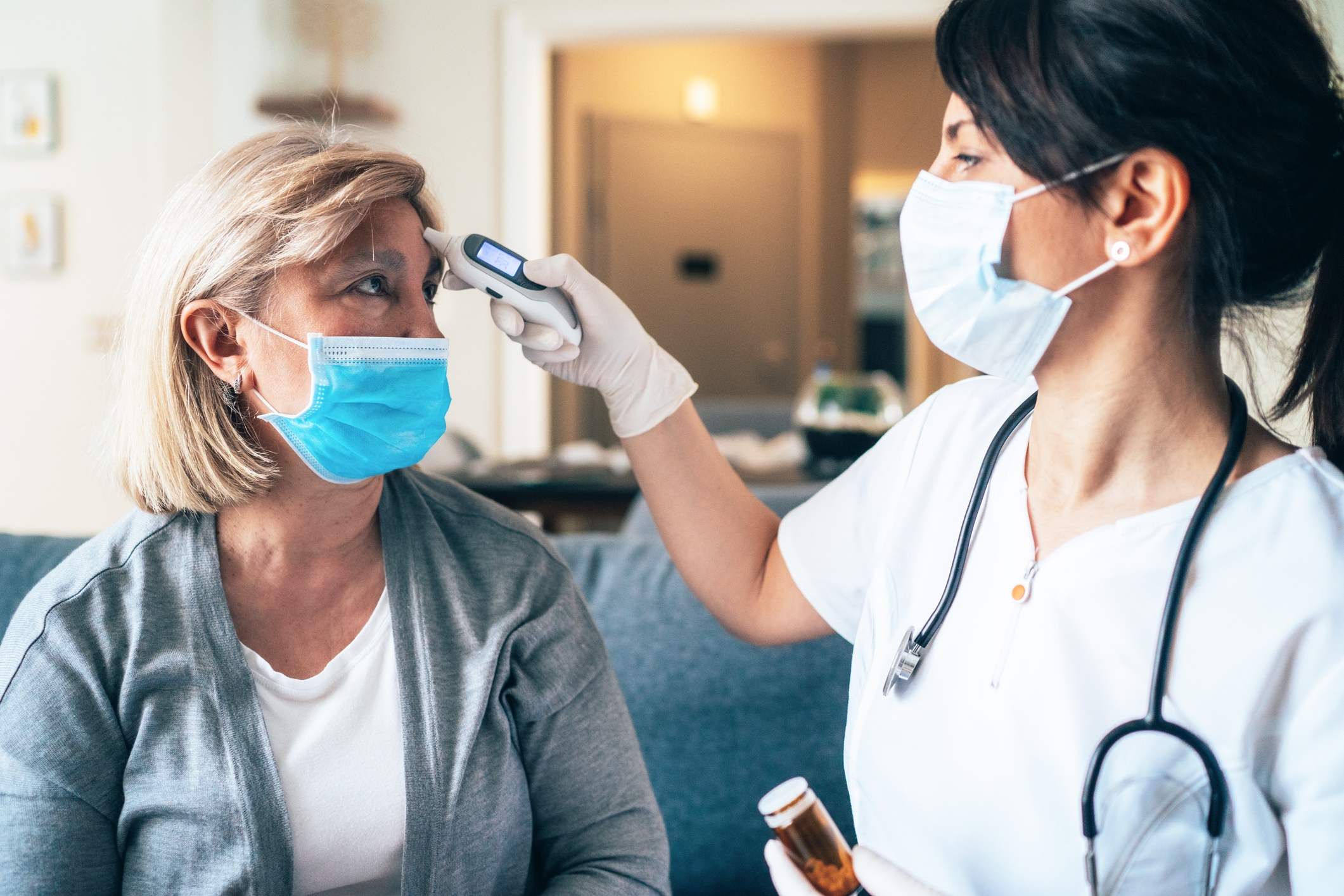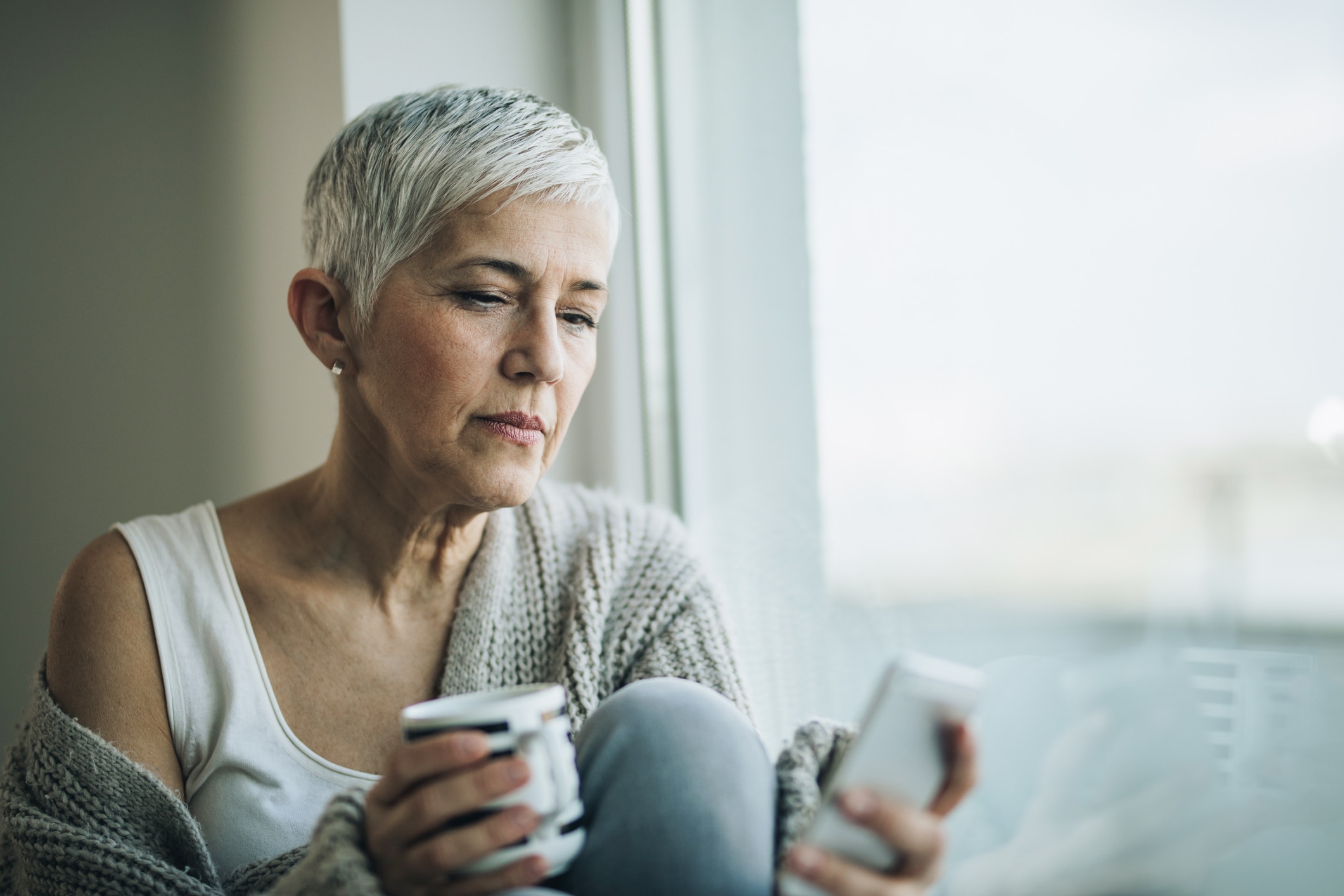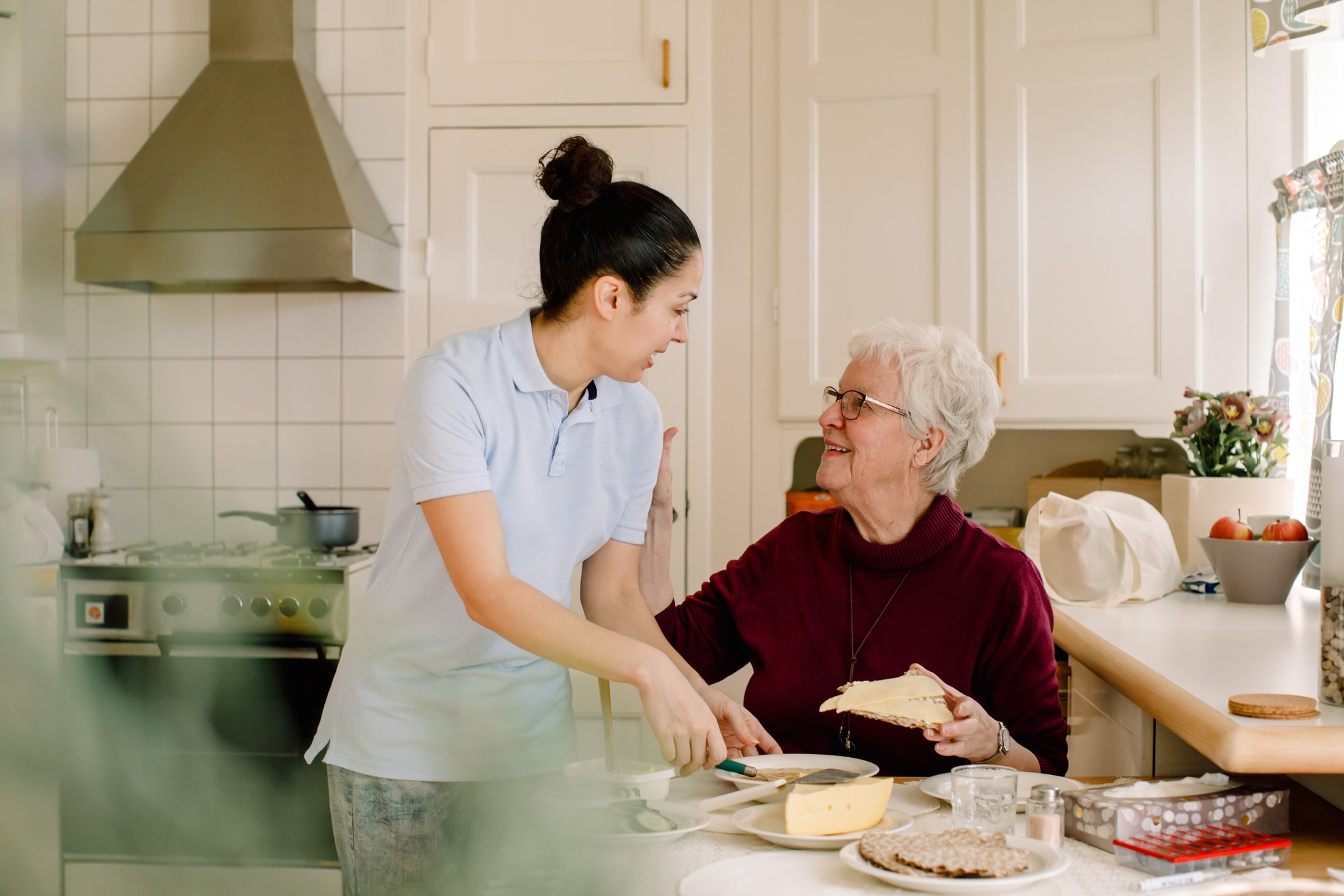In this article
If your elderly loved one has stopped properly taking care of themselves or their home, you might be wondering if you are dealing with a case of self-neglect. Self-neglect can look like poor hygiene, not eating well or letting your living space become dirty and even unsafe.
“Unfortunately, [self-neglect] is pretty common, especially for seniors who live alone or have health problems,” says Dr. Raj Dasgupta, a quadruple board-certified physician and medical reviewer for the National Council on Aging.
Self neglect can have serious impacts on seniors, leading to several health issues, increasing isolation and putting seniors at higher risk of accidents, Dasgupta says. Here, we’ll go over what self-neglect is, common causes and symptoms — and most importantly, how to help a self-neglecting senior in your life stabilize and get the help they need.
Key takeaways
- Self-neglect in seniors involves failing to meet basic needs such as hygiene, nutrition, medication and home safety, and can range from mild lapses to life-threatening situations. It is fairly common, especially among those with health problems or cognitive decline, but it should never be considered a normal part of aging.
- Causes of self-neglect often include mental health issues, dementia, chronic pain, physical limitations, cognitive decline and feelings of shame or embarrassment. Recognizing the signs — such as poor grooming, unsafe living conditions, isolation or hoarding — is crucial for early intervention.
- Helping a self-neglecting senior requires empathy, gentle communication, and collaboration in finding solutions, alongside professional support when needed. Options may include home health aides, care managers, therapy or even assisted living and caregivers should also prioritize their own well-being while providing support.
What is self-neglect?
Elder self-neglect generally means that an older person is not properly taking care of their basic needs, says Brittany Ferri, an occupational therapist with the National Council on Aging. This may look like issues with:
- Personal hygiene.
- Food and nutrition.
- Staying safe.
- Taking medications.
- Keeping one’s living space clean and organized.
- Maintaining one’s home.
Self-neglect in seniors can vary in intensity, says Mallory Grivner, a licensed clinical social worker and therapist at Thrive Counseling and Wellness, though it typically involves an inability to complete everyday tasks and take care of yourself. “This can be fairly benign such as wearing clothing more frequently that are not considered appropriate, or more serious and potentially life endangering, such as not taking required medications consistently,” she describes.
“Self-neglect can impair one’s independence, cause medical harm or even death in the most severe cases.”
— Mallory Grivner, licensed clinical social worker and therapist
Self-neglect is fairly common in the senior population, according to Grivner. It’s not uncommon to see at least a mild amount of self-neglect as a person ages. The more serious the self-neglect, the more likely it is to have serious impacts.
“For example, a senior who does not bathe regularly may incur social consequences, as others may no longer wish to socialize with them,” Grivner describes. “Self-neglect can impair one’s independence, cause medical harm or even death in the most severe cases.”
Why does self-neglect happen?
Although self-neglect is common, it shouldn’t be considered a standard aspect of getting older, Ferri says. It typically occurs because of specific medical, cognitive and mental health conditions. According to Ferri and Dasgupta, some of the most common causes of self-neglect include:
- Mental health issues, like depression.
- Dementia, including Alzheimer’s disease.
- Chronic pain.
- Physical limitations caused by conditions such as arthritis or heart issues.
- Lack of energy and motivation.
Cognitive deficits, forgetfulness and memory issues are a top cause of self-neglect, says Grivner. In fact, she says, self-neglect may be one of the earlier signs of dementia. But medical conditions or cognitive issues aren’t the only possible causes of self-neglect, says Grivner.
One cause that’s often misunderstood is the role that embarrassment and shame may place. “There can also be a layer of shame that causes self-neglect. For example, if someone is trying to refill prescriptions but cannot understand the online process required to do so, they might feel embarrassment in admitting their struggle and asking for help,” Grivner describes. “Therefore, they simply chose not to follow up.”
What are self-neglect signs and symptoms?
There are several possible signs of self-neglect, says Dasgupta. Here are a few to watch for:
- Poor hygiene and lack of grooming.
- Weight loss and poor nutritional status.
- Neglected medical needs, including not taking needed medications.
- A messy or unsafe home environment.
- Having trouble keeping up with bills.
- Increased isolation or seeming anti-social.
You can often spot self-neglect by taking note of your loved one’s appearance and grooming, Ferri describes. This may include wearing clothes that don’t suit the weather, having excessive body odor and wearing stained or soiled clothing.
“In severe cases of self-neglect, older adults may develop hoarding tendencies with cluttered or dirty surroundings that place them at further risk for falls, fires and pest infestations.”
— Brittany Ferri, occupational therapist
Your loved one’s living space may also raise red flags. You may notice increased challenges with cleaning, organizing and maintaining their home, Ferri says. Sometimes this can be quite serious and alarming. “In severe cases of self-neglect, older adults may develop hoarding tendencies with cluttered or dirty surroundings that place them at further risk for falls, fires and pest infestations,” Ferri says.
The deterioration that may occur inside the home can sometimes take several months to escalate. “When self-neglect impacts someone’s environment, it is common for these habits to build up over time as their conditions worsen,” Ferri says.
How can I help a self-neglecting loved one?
It can be challenging to know what to do when a senior in your life is showing signs of self-neglect. After all, you don’t want to make them feel judged or criticized or push them away. You may also not know what outside resources to turn to. Here are some ideas to help self-neglecting seniors, according to the experts we spoke to.
1. Talk to your loved one
Grivner says that if your loved one is showing signs of self-neglect, you want to approach things in a gentle manner. “Oftentimes if you are too forward, such as by telling someone they ‘have’ to do something, it will push them away,” she says. Instead, she suggests saying something like, “I have started to notice that you haven’t been taking a shower as much as you used to. Why is that?”
2. Include them in the solution
Once your loved one feels OK about discussing the matter, Grivner suggests coming up with a solution together, bearing in mind the potential for shame about the situation or anger about someone stepping in. “There is the possibility of resentment or frustration from both parties, so trying to work on the problem together is the best solution,” she says.
Read more:
3. Consult expert help
In many cases, managing self-neglect requires outside assistance. “If you’re facing self-neglect, it’s good to act quickly,” Ferri suggests. You may want to consider reaching out to professionals, such as:
- Geriatric care managers.
- Social workers.
- Specialized care nurses.
- Physical or occupational therapists.
- Speech language pathologists.
These professionals can help in figuring out what is going on with your loved one and coming up with a plan to get them the help they need. You may also consider taking them to their primary care doctor or a geriatric physician to rule out medical or cognitive issues that may be triggering symptoms of self-neglect.
4. Consider long-term care options
Dasgupta says that sometimes the solution to self-neglect will involve hiring a home health aide to help with daily tasks such as getting dressed, grooming and basic housekeeping.
At other times, you may want to consider moving your loved one to a nursing home or assisted living facility, if it’s clear they need a higher level of care.
“Be realistic with when you may need to elevate your concerns due safety issues.”
— Mallory Grivner
5. Seek local support
Many local senior centers and nonprofits have programs that offer help, companionship and other support, Dasgupta notes. “For serious cases, you may need to contact Adult Protective Services (APS), who can check in and help with resources.”
The bottom line on self-neglect
Self-neglect by seniors is prevalent, but it’s not something you should ignore. If your loved one is showing signs of self-neglect, you should support them in remedying the situation. Managing a situation of self-neglect in a senior involves empathy and kindness, but it also involves stepping in when necessary, says Grivner.
“Approach the situation compassionately,” she recommends. At the same time, “be realistic with when you may need to elevate your concerns due safety issues.” Most importantly, don’t expect that you should do this alone. Seeking professional help — from geriatric care managers, home health aides, doctors and local resources for seniors — is essential when it comes to dealing with self-neglecting seniors.
Lastly, don’t forget to put on your own oxygen mask, too. “Remember, being a caregiver is hard, so ensure you are taking care of yourself as well,” Grivner concludes.





